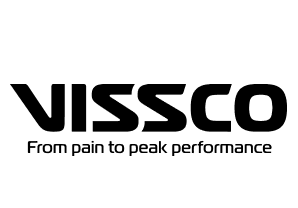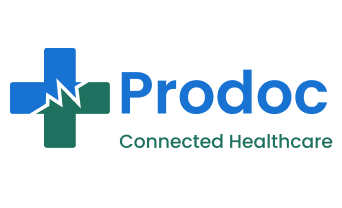In today’s fast-paced digital landscape, organizations that have embraced DevOps tools and practices are increasingly pulling ahead of their competitors. This transformative approach to software development and IT operations is not just a trend—it’s becoming a crucial differentiator in the market. Let’s explore why organizations leveraging DevOps tools are gaining a significant competitive edge.
1. Faster Time-to-Market
One of the most significant advantages of DevOps tools is the ability to drastically reduce the time it takes to bring new products and features to market.
How DevOps Tools Help:
– Automated CI/CD pipelines accelerate the release process
– Infrastructure-as-Code (IaC) tools enable rapid environment provisioning
– Containerization technologies like Docker facilitate consistent deployments
Impact:
Organizations can respond more quickly to market demands, outpacing competitors who are still struggling with lengthy release cycles.
2. Improved Quality and Reliability
DevOps tools contribute to higher quality software and more reliable systems.
How DevOps Tools Help:
– Automated testing tools ensure comprehensive test coverage
– Continuous monitoring tools detect issues early
– Version control systems and branching strategies facilitate better code management
Impact:
Higher quality products lead to increased customer satisfaction, fewer production issues, and a stronger market reputation.
3. Enhanced Collaboration and Communication
DevOps tools break down silos between development, operations, and other stakeholders.
How DevOps Tools Help:
– Collaboration platforms like Slack or Microsoft Teams integrate with DevOps tools
– Shared repositories and wikis facilitate knowledge sharing
– Automated notifications keep all team members informed of project status
Impact:
Improved collaboration leads to faster problem-solving, more innovative solutions, and a more engaged workforce.
4. Increased Efficiency and Cost Savings
DevOps tools significantly improve operational efficiency, leading to cost savings.
How DevOps Tools Help:
– Automation tools reduce manual, error-prone tasks
– Cloud management tools optimize resource usage
– Monitoring and analytics tools identify inefficiencies
Impact:
Organizations can do more with less, reallocating resources to innovation and growth initiatives.
5. Greater Scalability and Flexibility
DevOps tools enable organizations to scale their operations more effectively and adapt to changing demands.
How DevOps Tools Help:
– Cloud orchestration tools facilitate easy scaling of infrastructure
– Microservices architectures, supported by DevOps tools, allow for flexible system design
– Feature flags enable rapid experimentation and rollback
Impact:
Organizations can handle growth more effectively and pivot quickly in response to market changes or opportunities.
6. Enhanced Security and Compliance
Contrary to the misconception that speed compromises security, DevOps tools actually enhance security and compliance efforts.
How DevOps Tools Help:
– Automated security scanning tools integrate into the CI/CD pipeline
– Configuration management tools ensure consistent, secure setups
– Compliance-as-Code tools automate regulatory checks
Impact:
Organizations can maintain robust security and compliance postures while still moving quickly, reducing risk and building trust with customers.
7. Data-Driven Decision Making
DevOps tools provide rich data and insights that inform better decision-making.
How DevOps Tools Help:
– Monitoring and logging tools provide real-time system insights
– Analytics platforms offer deep dives into application performance
– A/B testing tools facilitate data-driven feature development
Impact:
Organizations can make more informed decisions about product development, resource allocation, and strategic direction.
8. Improved Customer Experience
By enabling faster updates, higher quality, and more responsive systems, DevOps tools ultimately lead to a better customer experience.
How DevOps Tools Help:
– Rapid deployment tools allow for quick bug fixes and feature updates
– Performance monitoring tools help maintain optimal user experience
– Feedback loops enable quick responses to customer needs
Impact:
Improved customer satisfaction leads to higher retention rates, positive word-of-mouth, and ultimately, business growth.
9. Talent Attraction and Retention
Organizations using cutting-edge DevOps tools are more attractive to top talent.
How DevOps Tools Help:
– Modern toolchains appeal to skilled professionals
– Automation reduces burnout from repetitive tasks
– Collaborative tools create a more engaging work environment
Impact:
The ability to attract and retain top talent further widens the competitive gap.
10. Continuous Innovation
DevOps tools foster a culture of continuous improvement and innovation.
How DevOps Tools Help:
– Experimentation platforms enable safe testing of new ideas
– Rapid feedback loops accelerate the learning process
– Automation frees up time for creative problem-solving
Impact:
Organizations can innovate more rapidly and effectively, staying ahead of market trends and customer needs.
Real-World Examples
Let’s look at a few organizations that have leveraged DevOps tools to get ahead:
1. Amazon: The e-commerce giant uses DevOps practices to deploy code every 11.7 seconds on average, allowing for rapid feature rollouts and bug fixes.
2. Netflix: Their famous “Chaos Monkey” tool, which randomly terminates instances in production to test system resilience, has helped them achieve 99.99% uptime.
3. Etsy: By implementing DevOps practices, Etsy reduced their deployment time from hours to minutes, enabling over 50 deployments per day.
4. Capital One: The financial services company adopted DevOps to reduce application downtime by 25% and increase developer productivity by 50%.
Overcoming Challenges
While the benefits of DevOps tools are clear, implementing them is not without challenges. Organizations need to overcome:
1. Cultural Resistance: DevOps requires a significant cultural shift, which can meet resistance.
2. Skills Gap: There may be a learning curve for teams to effectively use new tools.
3. Legacy Systems: Integrating DevOps tools with legacy systems can be complex.
4. Initial Investment: There may be upfront costs in terms of tools, training, and process changes.
However, organizations that successfully navigate these challenges position themselves for significant competitive advantage.
Conclusion
The adoption of DevOps tools is no longer just a nice-to-have—it’s becoming a critical factor in organizational success. By enabling faster delivery, higher quality, improved collaboration, and a culture of continuous improvement, DevOps tools are helping organizations not just keep pace with change, but drive it.
As we move further into an era where software is at the heart of nearly every business, the ability to develop, deploy, and maintain applications quickly and reliably is becoming a core competitive differentiator. Organizations that embrace DevOps tools and practices are positioning themselves at the forefront of this shift.
However, it’s important to remember that DevOps is not just about tools—it’s about culture, processes, and people. The most successful organizations are those that view DevOps as a holistic approach to improving their entire software development and delivery lifecycle.
For organizations that haven’t yet embraced DevOps, the message is clear: the time to start is now. The competitive gap is widening, and those who delay risk falling increasingly behind. But for those willing to make the leap, the rewards—in terms of speed, quality, efficiency, and innovation—are substantial.
As we look to the future, we can expect the role of DevOps tools to become even more central to organizational success. With the rise of AI, edge computing, and other emerging technologies, the ability to rapidly and reliably deliver software will only grow in importance. Organizations that master DevOps now will be well-positioned to lead in this exciting future.











